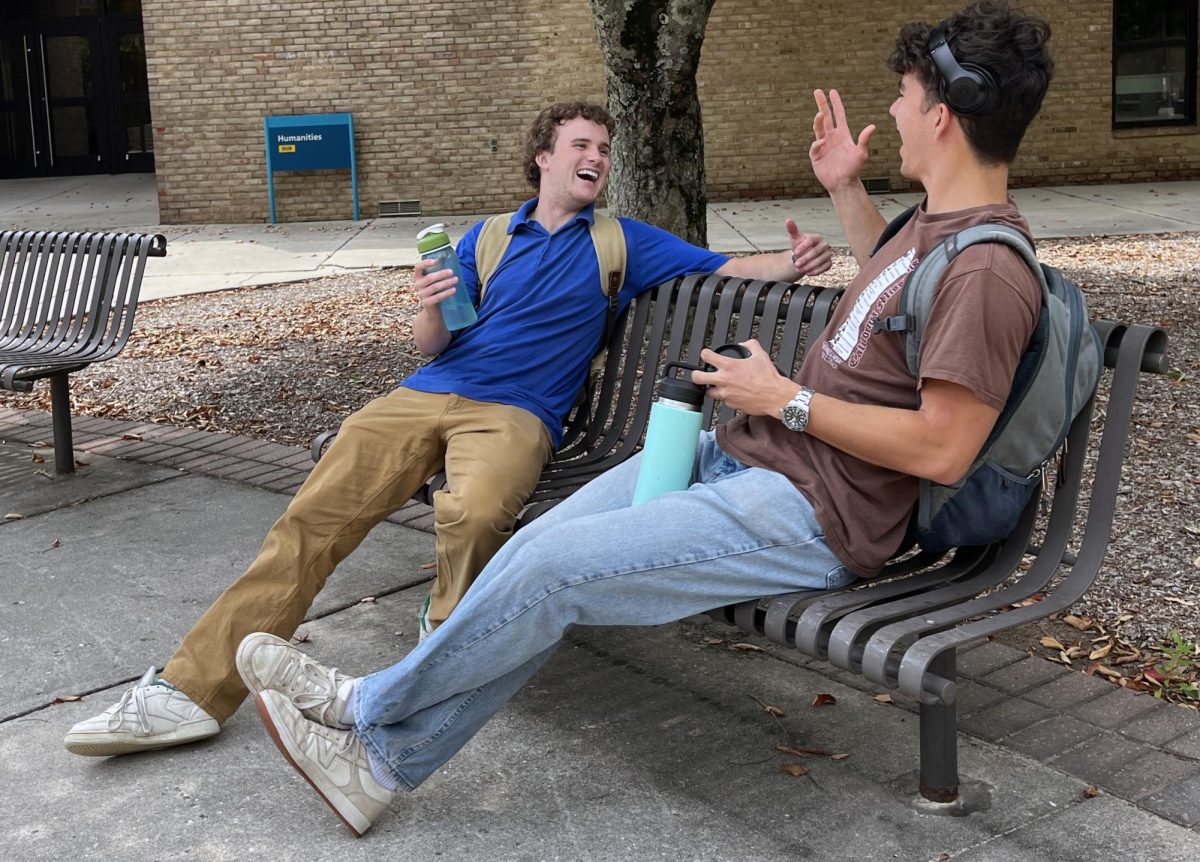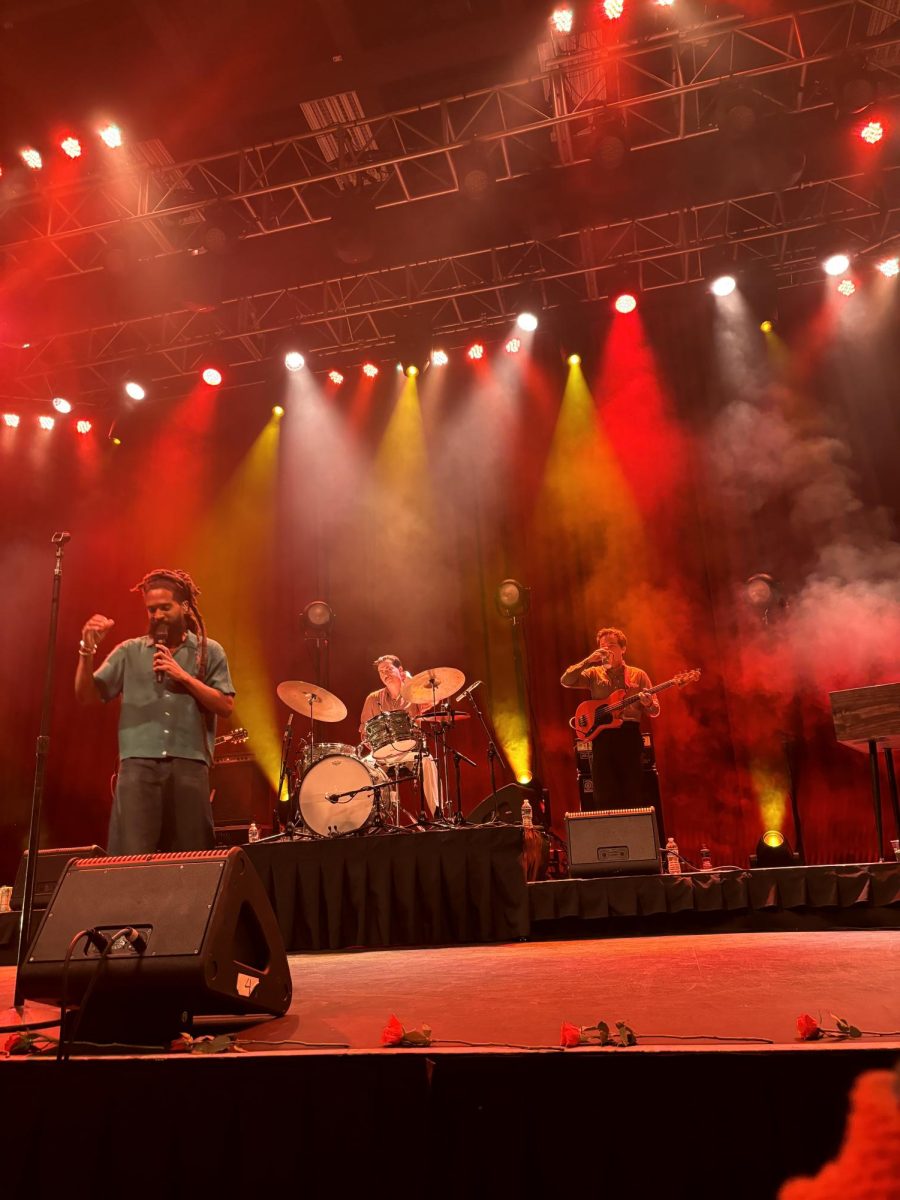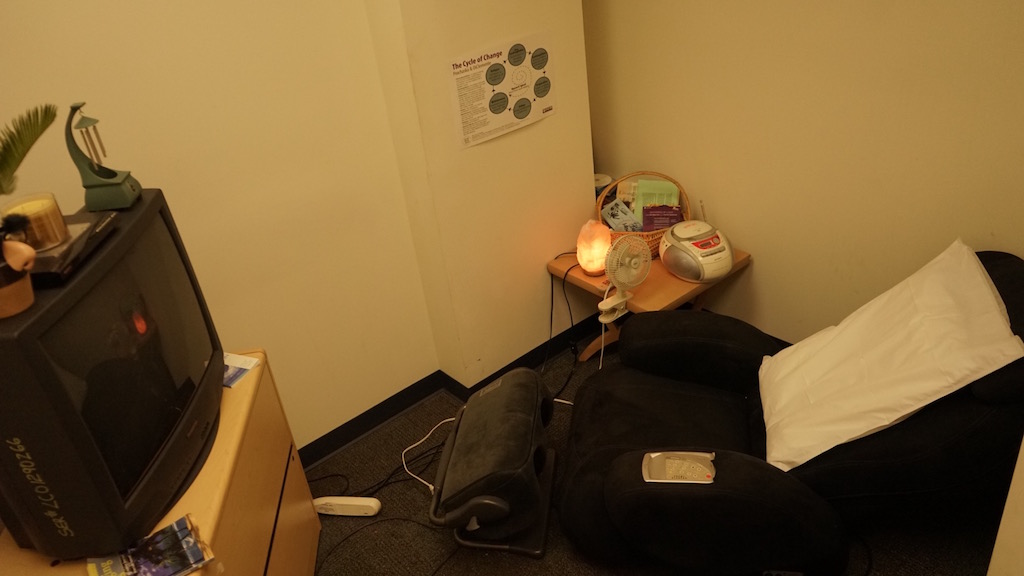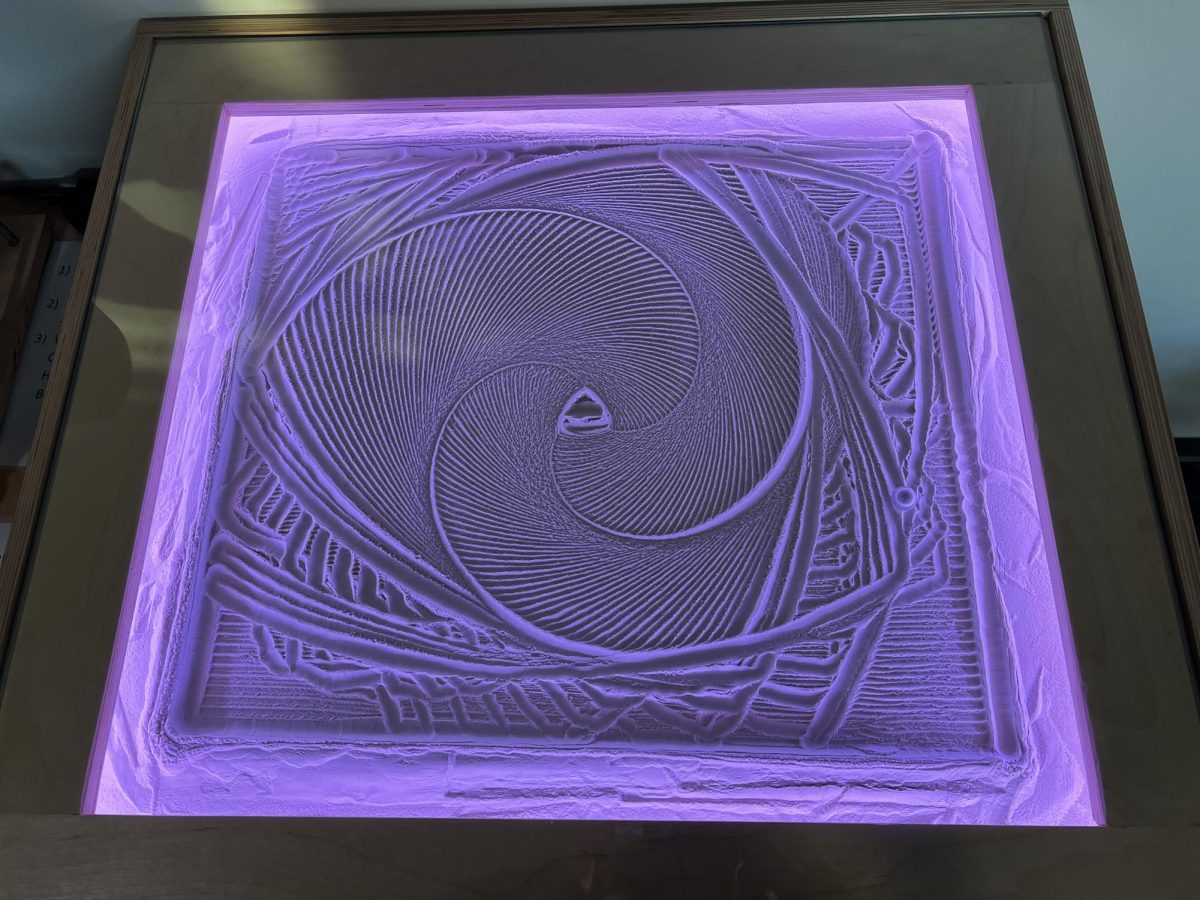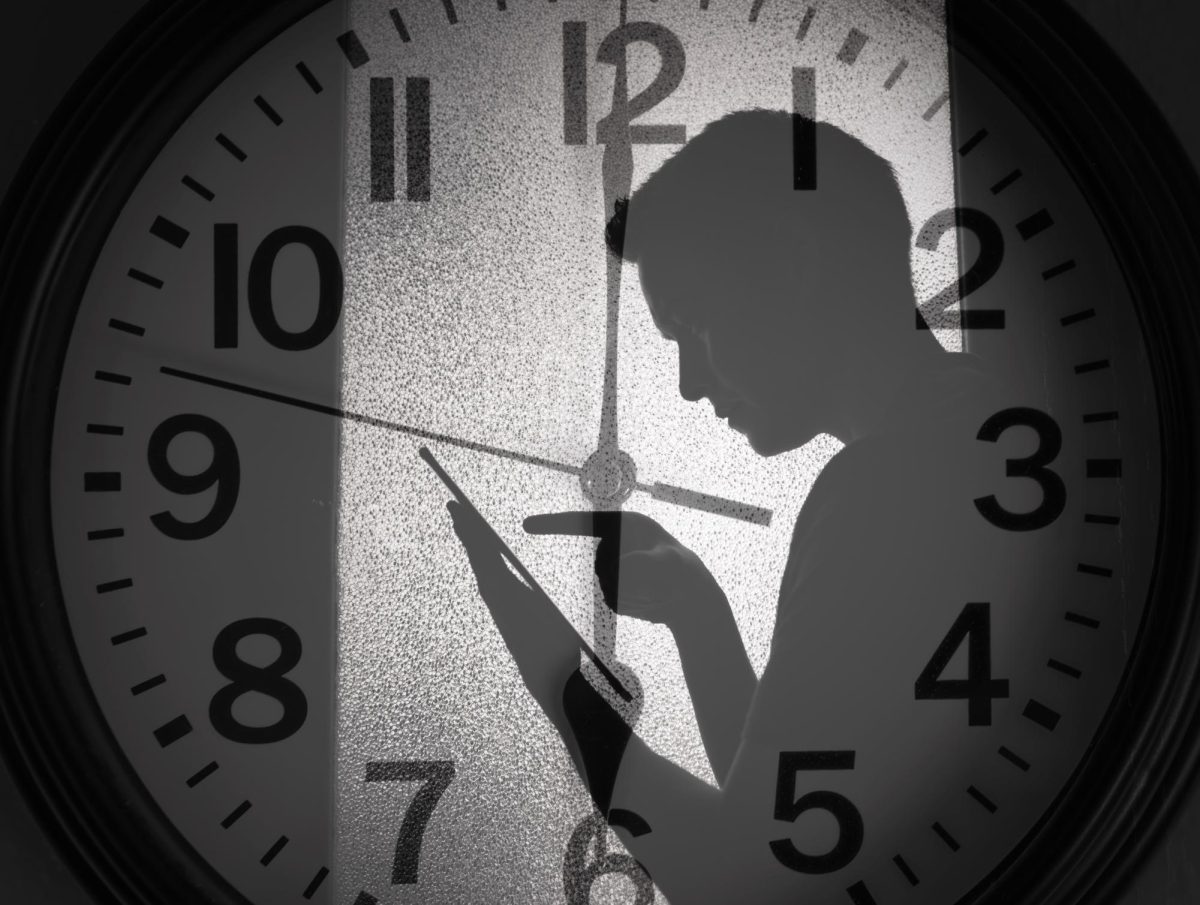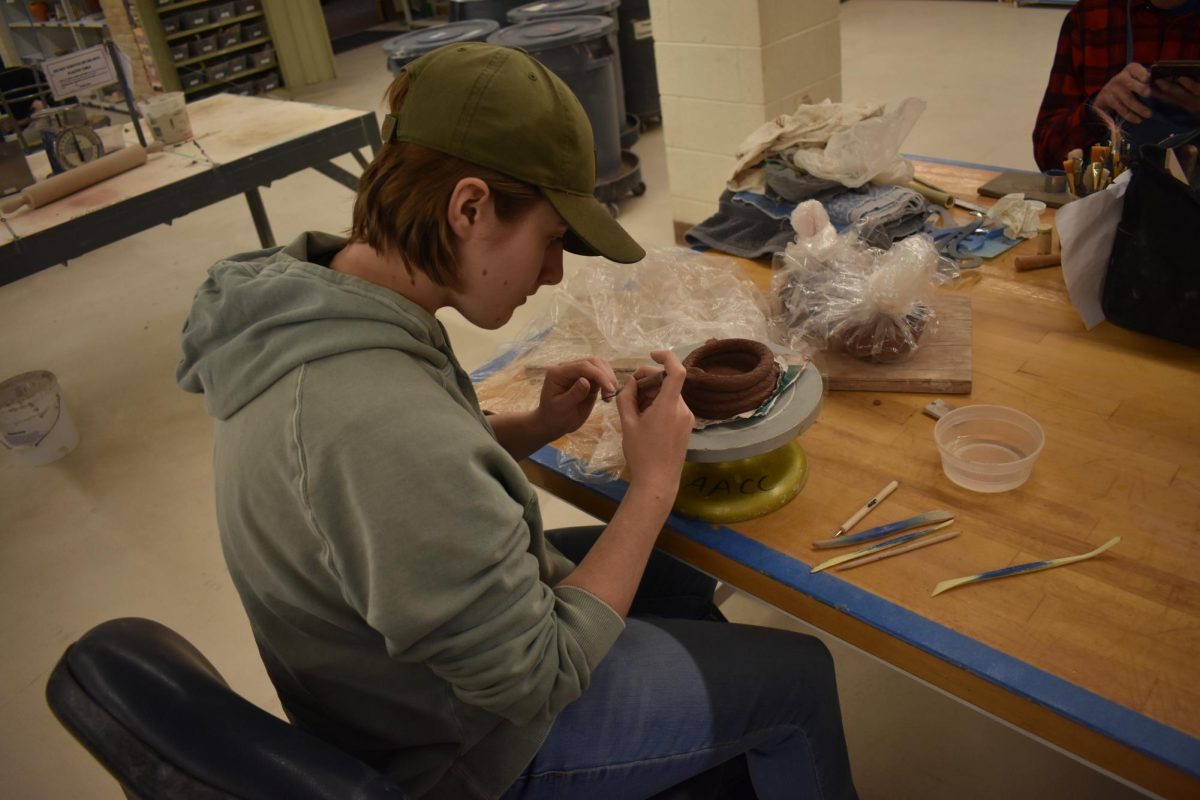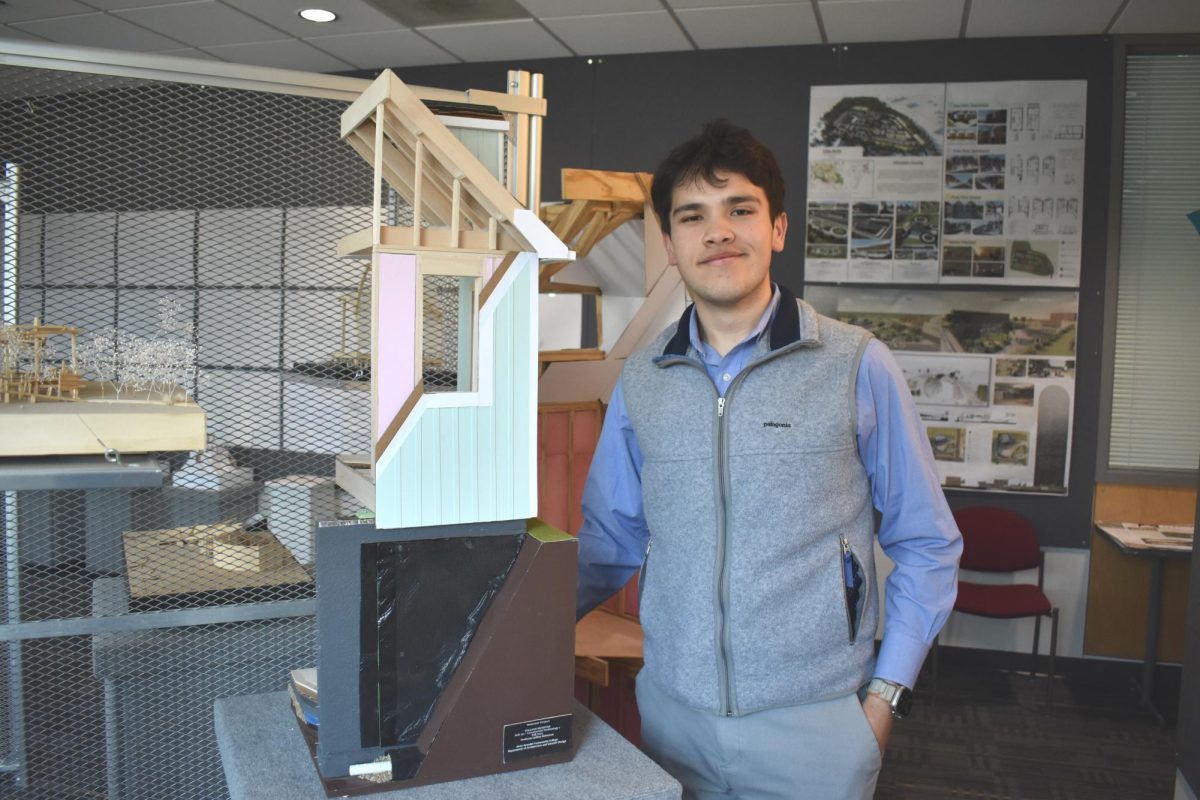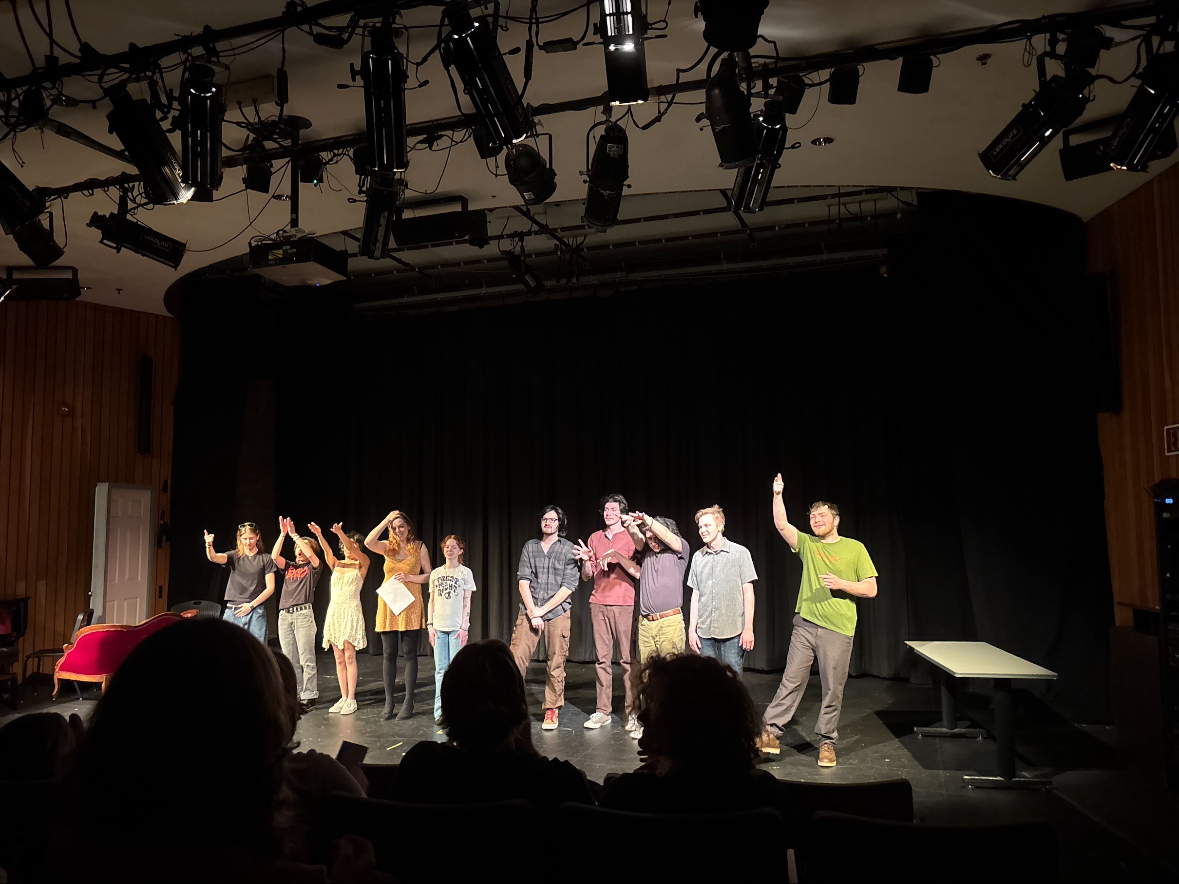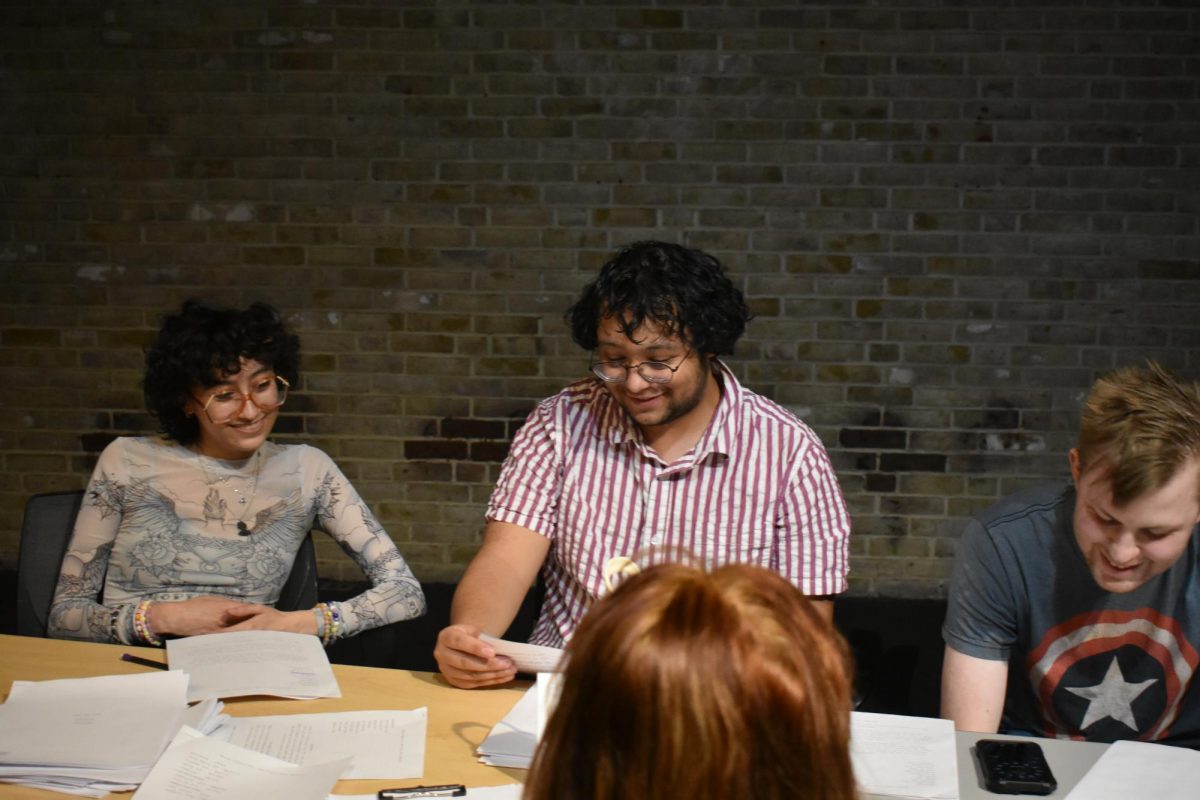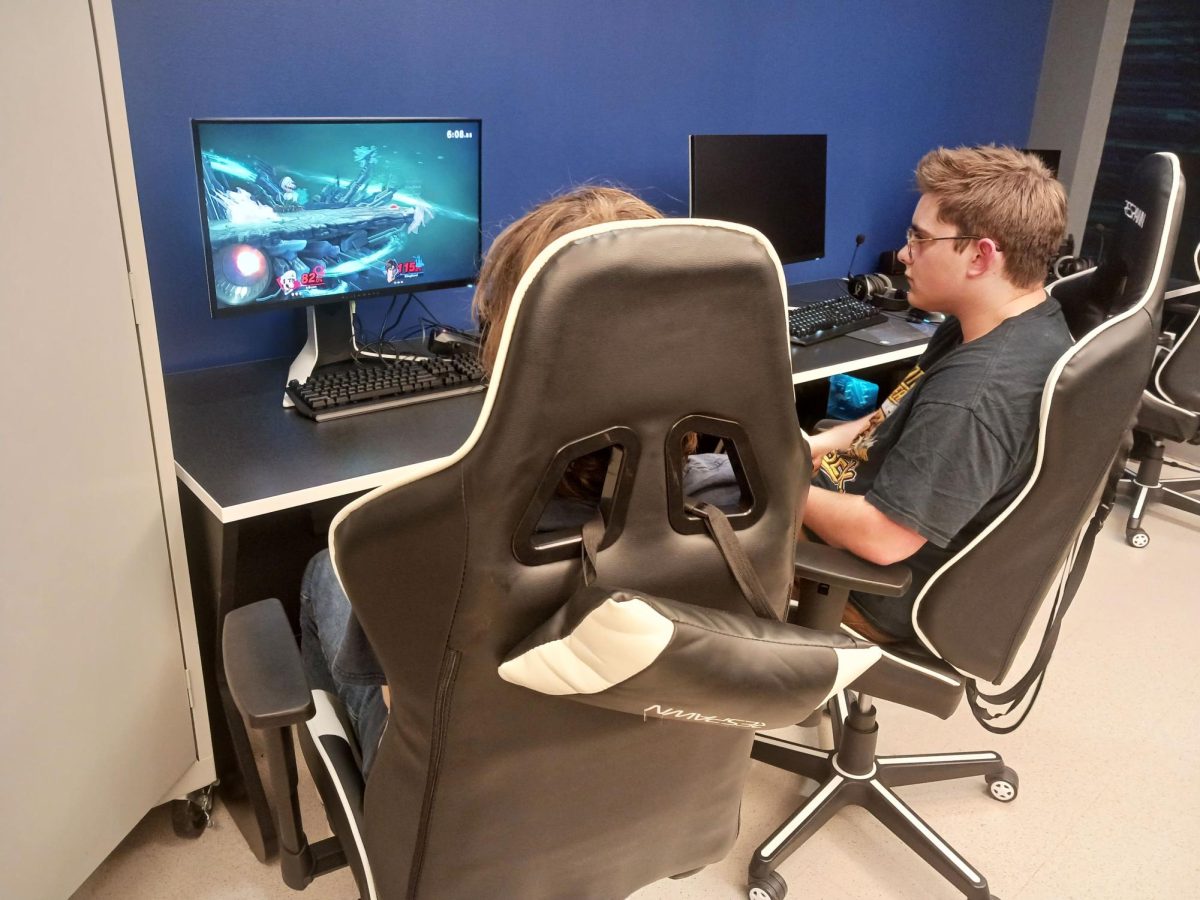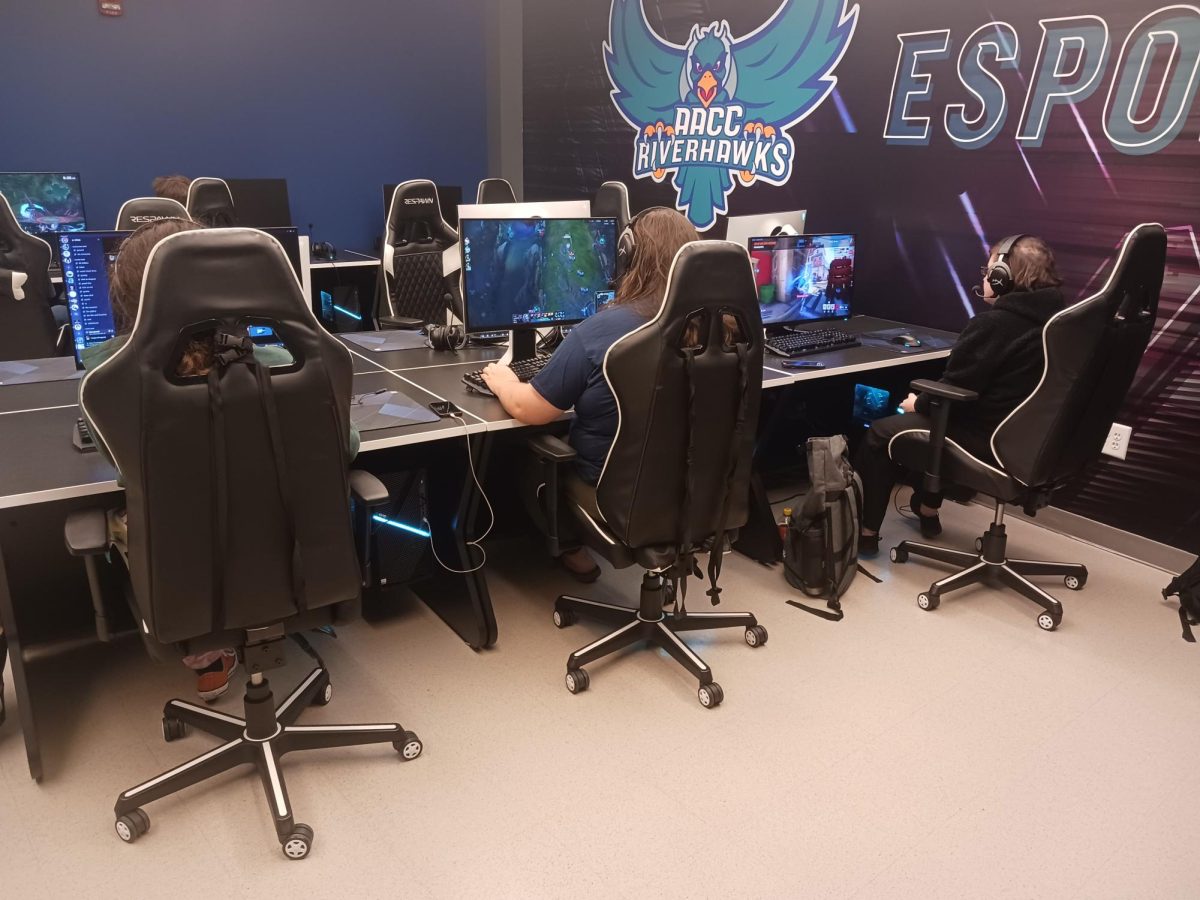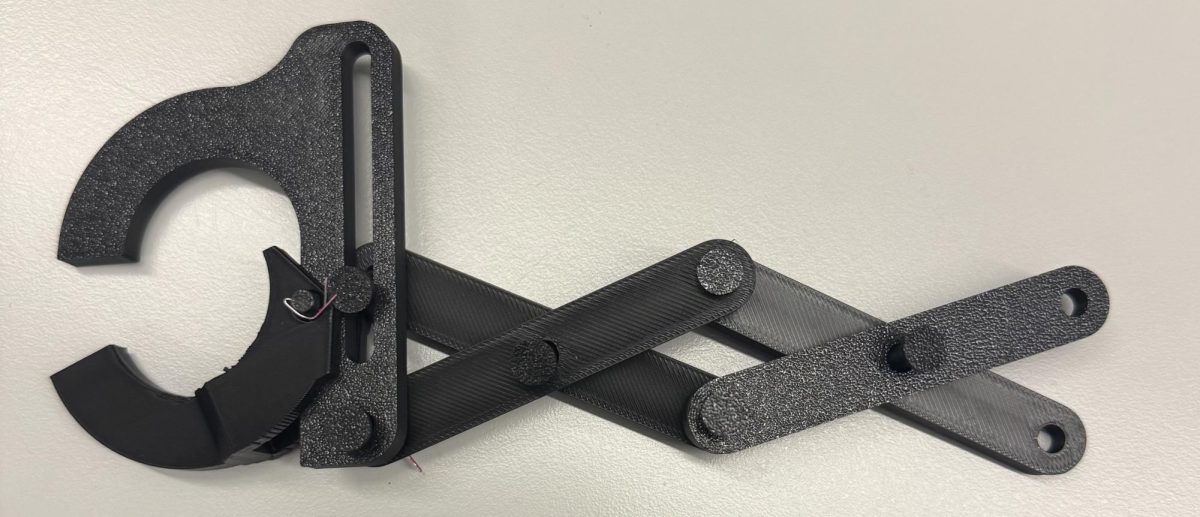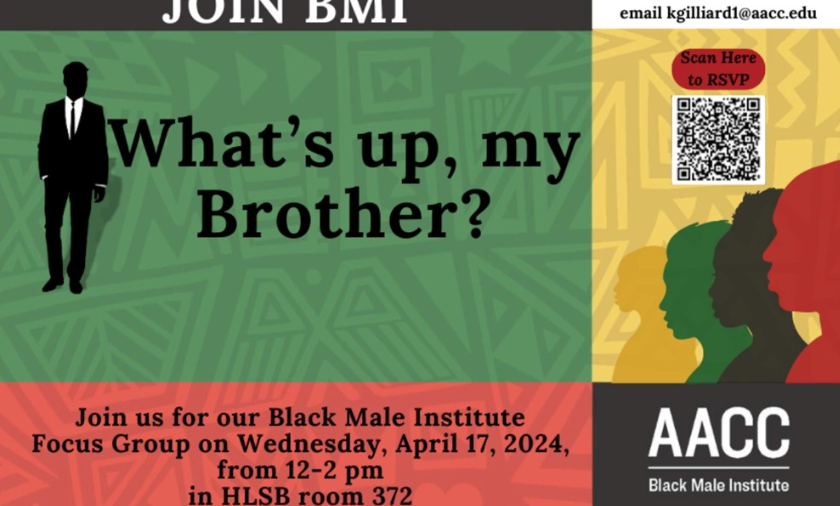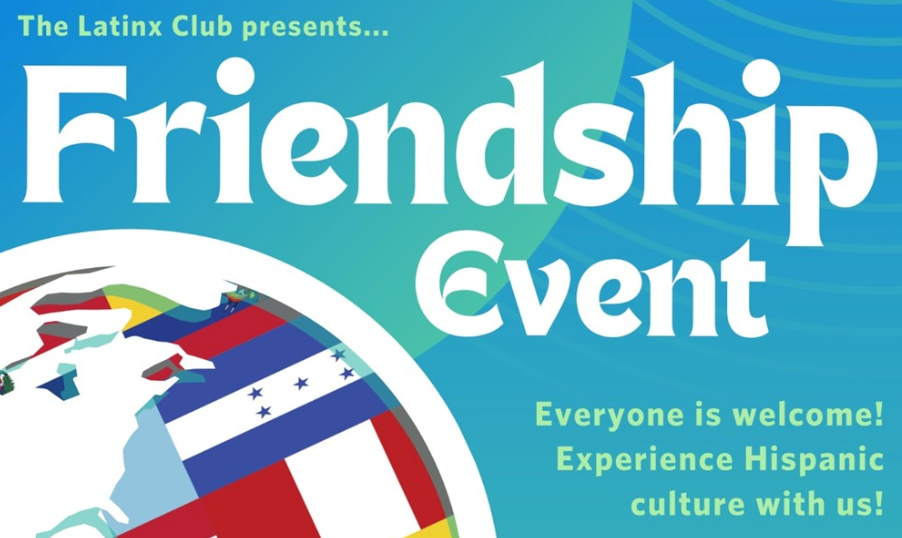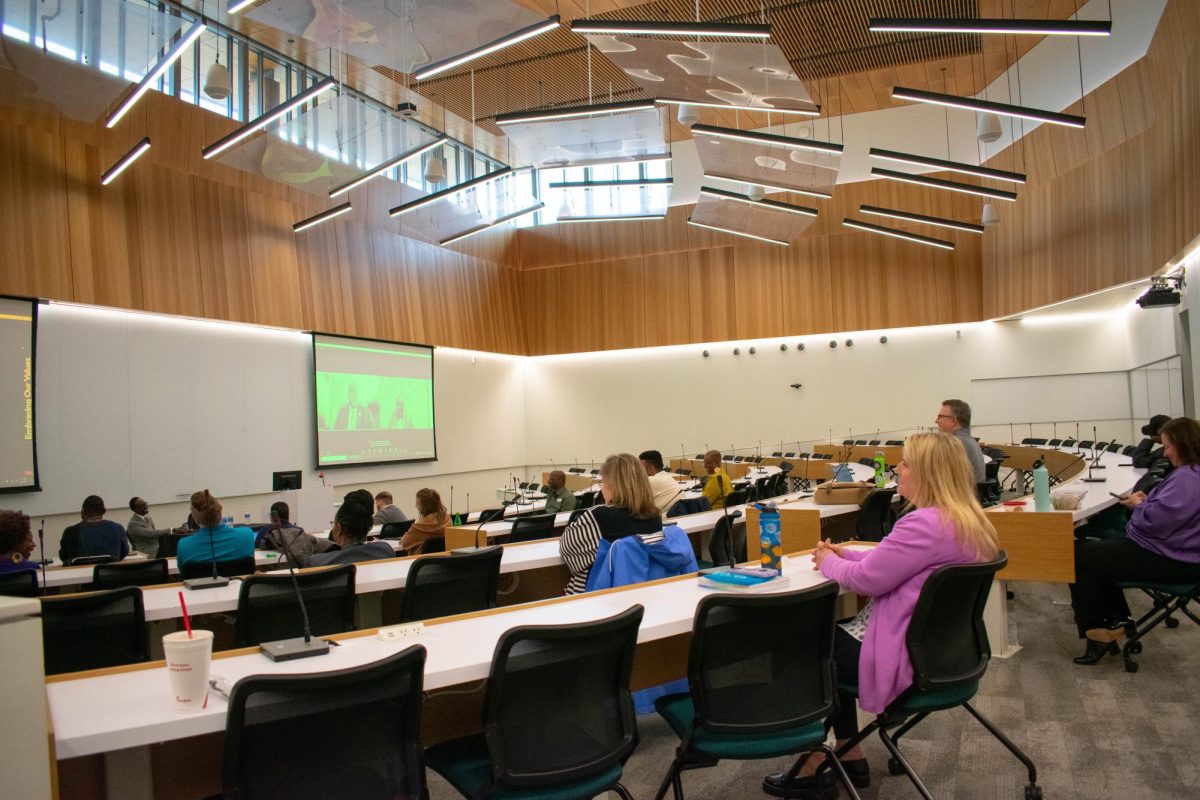AACC students say they have made lifelong best friends on campus since restrictions from the COVID-19 pandemic relaxed and in-person events resumed.
Zack Buster, a third-year communications student, says he has “absolutely made lifelong friends” at AACC, but the COVID-19 pandemic made it harder to connect with other students.
“There was no one on campus,” Buster says. “All your downtime [was] spent at home scrolling through Instagram and not in the library.”
Fazia Adams, a third-year chemistry student, says online classes made it more difficult to socialize, but now that students are back on campus she is more confident trying to make friends.
“During the pandemic when everything was online, I don’t remember anyone from my classes,” Adams says.
First-year transfer studies student Ali Hassan says he is “happy” to be making friends at school again.
Hassan says he only had one friend during the COVID-19 pandemic.
“COVID was hard for a lot of people,” Hassan says. “It was extremely difficult to make friends and keep friendships over that time period. But, having friends that you can actually be with in person is a very good way to keep yourself happy and to have a better time overall because there’s more people to communicate with.”
Larry Dix, a psychology professor, teaches four on-campus and two online courses this semester and says he notices that his face-to-face students are making friends with their classmates, but his online students are not.
“I have students … who built connections … and they were deep, rich connections that you look forward to,” Dix says. “Online … I have to work so hard to engage them and provide a great online experience that they often don’t get a chance to socialize. Even when I put them in [breakout room] groups online … sometimes students aren’t talking.”
Buster agrees that online socializing is not the same as being on campus.
“Every single event was virtual,” Buster says. “When you’re virtual, the meeting ends when the meeting ends. When you’re in person, you get to talking to people after. … It’s a lot harder to do that in a Zoom meeting, like, I doubt most people are typing in the Zoom chat, ‘Hey, does anyone want to go out to eat after this?’”
Dix says “something happened” when students came back to campus after the pandemic.
“I started [teaching] before COVID; I’ve seen a staunch change, dark change,” Dix says. “A lot of students who I had no clue were struggling with anxiety and depression, and obviously, when you are dealing with any of those issues, you turn inward because you can’t exert your energy elsewhere.”
Dix says extroverts may have an easier time socializing since students returned to campus.
“I’m not a social person naturally,” Buster says. “Be … the first one to reach out, because you don’t know how many lifelong best friends you’re missing out on because you didn’t talk to them first.”
Adams says she has started hanging out with classmates, something she never did before this semester.
“My one friend from chemistry class, we hang out quite a bit which is surprising because I normally don’t do that,” Adams says.
Buster says he made most of his closest friends by joining student clubs and attending events on campus. Buster was the editor-in-chief of the Campus Current last school year, and was a member of the Adventure Club and Genders and Sexualities Alliance.
“Show yourself friendly,” Buster says. “Ask to go out to eat with people after events, go to out-of-school parties. … That type of stuff is how you build connections with people.”
Dix says he thought back to his undergraduate experience and the friends he made.
“I wouldn’t have made it through if I didn’t have … people who [were] coming in,” Dix says. “We would socialize and talk in between classes and out in the hallway and go to lunch. … It made a big difference.”
Dix says people move farther away from their acquaintances, such as peers they grew up with, as they become older.
Buster says most people were friends in high school because they are “cooped up in a room together for years,” not because they had things in common.
“You just sort of called them your best friend because that’s the person you talk to the most,” Buster says. “But in college, you have the freedom to find people you can actually call your best friend and who are actually compatible with you on a friendship level.”
Buster says it is easier to find friends who share similar interests in college.
“If you don’t think there’s other people who are like you out there, there are,” Buster says. “Yeah, you’re unique, but there are people who can relate to you.”
Miriam Huntoon, a second-year biology student, says she has made friends in her classes this semester but she doesn’t see them outside of school.
Huntoon says she made these friends “just by being [herself] and then sparking conversation about mutual interests.”
Hassan says he made good friends in class by engaging in small-talk.
“The first day of class, I sat by myself,” because both of the tables in the classroom were full before he arrived, Hassan says. “One of them happened to drop out of that class, so I went over and sat there. Then we all just kind of started talking and became really good friends.”
Hassan says he always looked forward to chatting with these new friends before class in what they called “couch therapy.”
“The four of us would sit at a couch and just talk about how our weekend went or something like that,” Hassan says. “It was a lot of fun just getting to unpack stuff with my friends.”
Adams says she made a friend because of a shared “situation this semester.”
“Our professor [left] … within the first month or two of classes,” Adams says. “This girl and I just started talking really major crap and then we bonded and then we started talking crap outside of school.”
Adams says her favorite memory with this friend was going to Chick-fil-A to attempt to study.
“We did no studying that day,” Adams says. “We were just talking about any and everything. It was just really nice, because I never really had that before.”
Buster says he has too many memories on campus to choose just one favorite.
“Some of us from the Campus Current, we do Dungeons and Dragons sessions,” Buster says. “Some of us went to laser tag one time and … it was in this really rundown mall. Even though we only played two games, it was so much fun it felt like three hours.”
“Psychologically it’s reassuring, because [peers] can share … experiences … that are similar to you, and you can realize that it’s not just you,” Dix says. “Emotionally, it’s phenomenal.”
Dix says it is “profoundly important” to make friends in college.
“When you are in that high school [and] college area, extending your social network, it prepares you for greater social relationships in life, more adult-like relationships” Dix says.
“College friendships are just invaluable,” Dix says.



